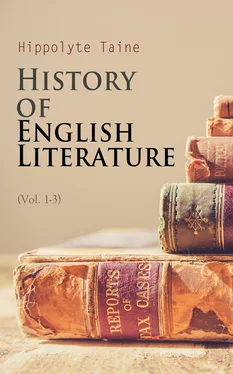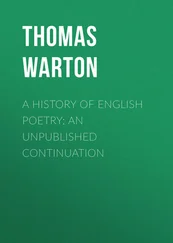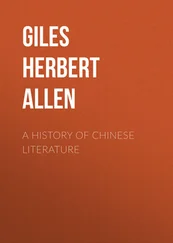SECTION VI.—Furious Passions—Exaggerated Characters
Table of Contents
Let us consider the different personages which this art, so suited to depict real manners, and so apt to paint the living soul, goes in search of amidst the real manners and the living souls of its time and country. They are of two kinds, as befits the nature of the drama: one which produces terror, the other which moves to pity; these graceful and feminine, those manly and violent. All the differences of sex, all the extremes of life, all the resources of the stage, are embraced in this contrast; and if ever there was a complete contrast, it is here.
The reader must study for himself some of these pieces, or he will have no idea of the fury into which the stage is hurled: force and transport are driven every instant to the point of atrocity, and further still, if there be any further. Assassinations, poisonings, tortures, outcries of madness and rage; no passion and no suffering are too extreme for their energy or their effort. Anger is with them a madness, ambition a frenzy, love a delirium. Hippolyto, who has lost his mistress, says, "Were thine eyes clear as mine, thou mightst behold her, watching upon yon battlements of stars, how I observe them." [458]Aretus, to be avenged on Valentinian, poisons him after poisoning himself, and with the death-rattle in his throat, is brought to his enemy's side, to give him a foretaste of agony. Queen Brunhalt has panders with her on the stage, and causes her two sons to slay each other. Death everywhere; at the close of every play, all the great people wade in blood: with slaughter and butcheries, the stage becomes a field of battle or a churchyard. [459]Shall I describe a few of these tragedies? In the "Duke of Milan," Francesco, to avenge his sister, who has been seduced, wishes to seduce in his turn the Duchess Marcelia, wife of Sforza, the seducer; he desires her, he will have her; he says to her, with cries of love and rage:
"For with this arm I'll swim through seas of blood,
Or make a bridge, arch'd with the bones of men,
But I will grasp my aims in you, my dearest,
Dearest, and best of women!" [460]
For he wishes to strike the duke through her, whether she lives or dies, if not by dishonor, at least by murder; the first is as good as the second, nay, better, for so he will do a greater injury. He calumniates her, and the duke, who adores her, kills her; then, being undeceived, loses his senses, will not believe she is dead, has the body brought in, kneels before it, rages and weeps. He knows now the name of the traitor, and at the thought of him he swoons or raves:
"I'll follow him to hell, but I will find him,
And there live a fourth Fury to torment him.
Then, for this cursed hand and arm that guided
The wicked steel, I'll have them, joint by joint,
With burning irons sear'd off, which I will eat,
I being a vulture fit to taste such carrion." [461]
Suddenly he gasps for breath, and falls; Francesco has poisoned him. The duke dies, and the murderer is led to torture. There are worse scenes than this; to find sentiments strong enough, they go to those which change the very nature of man. Massinger puts on the stage a father who judges and condemns his daughter, stabbed by her husband; Webster and Ford, a son who assassinates his mother; Ford, the incestuous loves of a brother and sister. [462]Irresistible love overtakes them; the ancient love of Pasiphaë and Myrrha, a kind of madness-like enchantment, and beneath which the will entirely gives way. Giovanni says:
"Lost! I am lost! My fates have doom'd my death!
The more I strive, I love; the more I love,
The less I hope: I see my ruin certain....
I have even wearied heaven with pray'rs, dried up
The spring of my continual tears, even starv'd
My veins with daily fasts: what wit or art
Could counsel, I have practis'd; but, alas!
I find all these but dreams, and old men's tales,
To fright unsteady youth: I am still the same;
Or I must speak, or burst." [463]
What transports follow! what fierce and bitter joys, and how short too, how grievous and mingled with anguish, especially for her! She is married to another. Read for yourself the admirable and horrible scene which represents the wedding night. She is pregnant, and Soranzo, the husband, drags her along the ground, with curses, demanding the name of her lover:
"Come strumpet, famous whore?...
Harlot, rare, notable harlot,
That with thy brazen face maintain'st thy sin,
Was there no man in Parma to be bawd
To your loose cunning whoredom else but I?
Must your hot itch and plurisy of lust,
The heyday of your luxury, be fed
Up to a surfeit, and could none but I
Be pick'd out to be cloak to your close tricks,
Your belly-sports?—Now I must be the dad
To all that gallimaufry that is stuff'd
In thy corrupted bastard-bearing womb?
Say, must I?
Annabella. Beastly man? why, 'tis thy fate. I su'd not to thee.... S. Tell me by whom." [464]
She gets excited, feels and cares for nothing more, refuses to tell the name of her lover, and praises him in the following words. This praise in the midst of danger is like a rose she has plucked, and of which the odor intoxicates her:
" A. Soft! 'twas not in my bargain. Yet somewhat, sir, to stay your longing stomach I am content t' acquaint you with the man, The more than man, that got this sprightly boy— (For 'tis a boy, and therefore glory, sir, Your heir shall be a son.) S. Damnable monster? A. Nay, and you will not hear, I'll speak no more. S. Yes, speak, and speak thy last. A. A match, a match?... You, why you are not worthy once to name His name without true worship, or, indeed, Unless you kneel'd to hear another name him. S. What was he call'd? A. We are not come to that; Let it suffice that you shall have the glory To father what so brave a father got.... S. Dost thou laugh? Come, whore, tell me your lover, or, by truth, I'll hew thy flesh to shreds; who is't?" [465]
She laughs; the excess of shame and terror has given her courage; she insults him, she sings; so like a woman!
" A. (Sings) Che morte piu dolce che morire per amore. S. Thus will I pull thy hair, and thus I'll drag Thy lust be-leper'd body through the dust.... ( Hales her up and down ) A. Be a gallant hangman.... I leave revenge behind, and thou shalt feel't.... ( To Vasquez. ) Pish, do not beg for me, I prize my life As nothing; if the man will needs be mad, Why, let him take it." [466]
In the end all is discovered, and the two lovers know they must die. For the last time, they see each other in Annabella's chamber, listening to the noise of the feast below which shall serve for their funeral feast. Giovanni, who has made his resolve like a madman, sees Annabella richly dressed, dazzling. He regards her in silence, and remembers the past. He weeps and says:
Читать дальше












